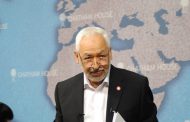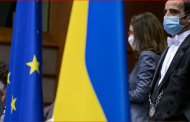Mohammed Abdul Ghaffar
Despite the signing of the Stockholm agreement at the end of last year, December 2018, the Huthi terrorist militia is still trying to evade the agreement, with the aim of delaying the implementation of the agreement for as long as possible, giving it the ability to achieve any political or military gain on the ground.
On Friday, May 10, 2019, the Iranian-backed Houthi militia restricted the movement of Michael Lluisgard, head of the Houthi redeployment coordination committee and chief international observer, and led his meetings and consultations to Aden, the country’s interim capital, south of Yemen.
This process is added to the series of successive failures in which Loesgard was involved during his talks with the Houthi militia, most recently in April 2019, when he failed to convince Houthi leaders to implement the terms of the Stockholm agreement.
The chief international observer left the Saudi capital of Riyadh with Martin Griffith, the UN Secretary-General’s special envoy to Yemen, and President Abd Rabbo Mansour Hadi, the Yemeni president in Riyadh, to hold consultative meetings on the agreement.
Colonel Wadhah al-Dabish, spokesman for the West Coast Liberation Operations, said earlier that the UN envoy had not succeeded in persuading the Huthis to withdraw from the city of Hodeidah and its ports, and failed to lift the restrictions that accompany the work of international observers, which is rejected by the militias.
On 2 May 2019, Brigadier General Abdu Abdullah Majali, the spokesman of the Yemeni National Army, stated that the Huthi militias had committed 3,719 violations in the city of Hodeidah, west of Yemen, since the UN truce came into force on December 18, 2018.







































admin in: How the Muslim Brotherhood betrayed Saudi Arabia?
Great article with insight ...
https://www.viagrapascherfr.com/achat-sildenafil-pfizer-tarif/ in: Cross-region cooperation between anti-terrorism agencies needed
Hello there, just became aware of your blog through Google, and found ...